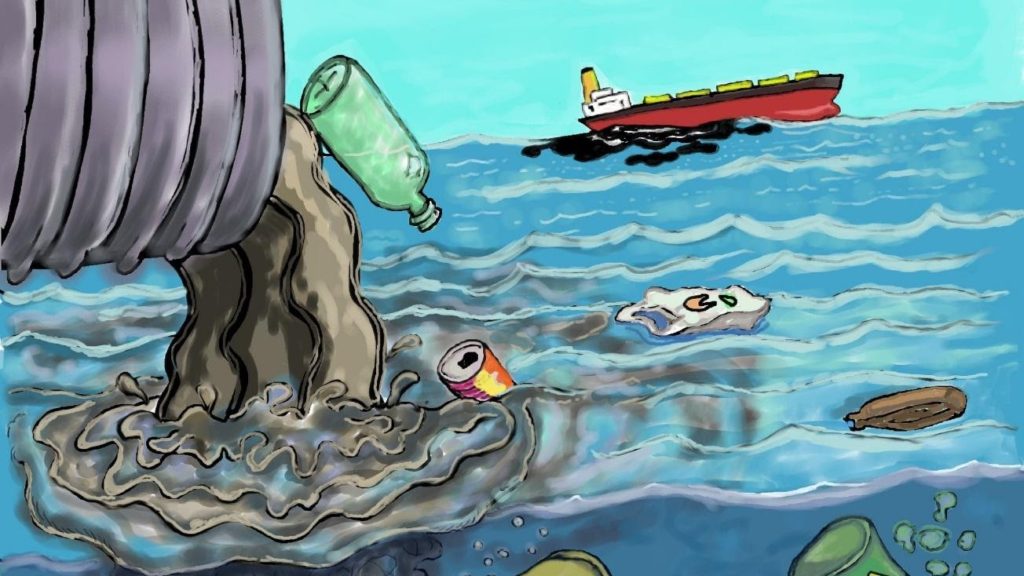
The truth is, human health is in danger – not only because of inadequate health services but because we live in an environment that hasn’t been properly cared for in ages. It’s harrowing to pin down exactly what aspects cause an environmental health hazard. Health problems related to the environment are intricate and develop for various reasons, including how fast a person’s genes develop a condition or disease. However, we know one thing: environmental health problems are linked to biological, physical, and even economic factors. To put it simply, “what you’re exposed to” isn’t the only factor that matters.
The food we eat, the water we drink, the air we breathe, and the buildings, homes, and neighborhoods we work and live in can contribute to environmental health hazards. Some potential sources of environmental factors that disrupt human health include:
- Improper Healthcare Services
Many individuals face barriers that limit or prevent access to needed health care services, ultimately increasing the risk of health disparities and terrible health outcomes. Some factors contribute to the lack of access to healthcare. These are unreliable transportation to clinics, economic instability, and lack of education regarding the importance of preventative care. People who don’t have access to healthcare services are at a higher risk of lingering conditions, including cancer, heart disease, asthma, or diabetes.
Furthermore, suppose you are a health professional interested in promoting an optimal healing environment. In that case, you might want to consider expanding your education. An online MPH degree is a perfect option for people like you. With such a degree, you can guide the people in your community towards better hygiene, help them lead a disease-free life, and make a difference.
- Natural Disasters and Climate Change
One of the severe and life-threatening consequences for human health is climate change, accompanied by the tremendous increase in natural disasters. Believe it or not, climate change is the single biggest threat to human health. How? Climate change disturbs the natural world, and it impedes health and upsurges vulnerability to disease. These include variations in the planet’s temperature and more frequent and heavy rains. What’s worse, these impacts may result in greater vulnerability to respiratory or nervous diseases, diarrhea, and many more.
Furthermore, where there’s climate change, there’s a frequent occurrence of natural disasters. These disasters have a ravenous effect on communities and homes and sometimes resulting in loss of life. Droughts, wildfires, cyclones, and hurricanes are just the beginning.
- Air Pollution
According to reliable research pieces, the effects of air pollution on humans are a great health concern. Not just because of the role they play in climate change, but also because revelation to air pollution can increase mortality and morbidity.
When environmental scientists discuss air pollution, they shed light on any liquid, solid, or gas particles suspended in the air and spread poisonous effects. Whenever we think of air pollution, we tend to think of it in terms of human-caused pollutants and for the right reasons. Some of the most ubiquitous and dangerous examples of air pollution include truck and car exhaust and the pollution coming from industrial waste. Still, there are many natural air pollutions causing health concerns. For instance, mold spores and pollen are often linked with allergies and asthma. According to WHO, the effects of air pollution on humans are tremendous because air pollution is accountable for:
- 17% of all global disease and deaths come from acute lower respiratory infections
- 29% of all worldwide deaths from lung cancer
- 24% of all worldwide deaths from stroke
- Low-quality Waters
Millions of people have zero access to clean and pure drinking water. What’s worse, about a third of the world’s population lacks access to adequate sanitation services (including clean bathrooms). No doubt, the health implications are saddening: Every day, about 2,200 children die because of diseases caused by impure drinking water.
Furthermore, several factors can contribute to the poor quality of water. The most prominent are industrial pollution and waste, and outdated plumbing infrastructures.
Conclusion
These factors may seem like “common” mentions – like the kind of stuff we’ve heard for ages. The thing is, each of these factors contributes to destroying our health one organ at a time. We, as humans, need to take the necessary measures to improve our living conditions before it’s too late. So, let’s vow to end these environmental hazards for good by practicing healthy and hygienic habits. Only then will we be able to lessen the risks.








